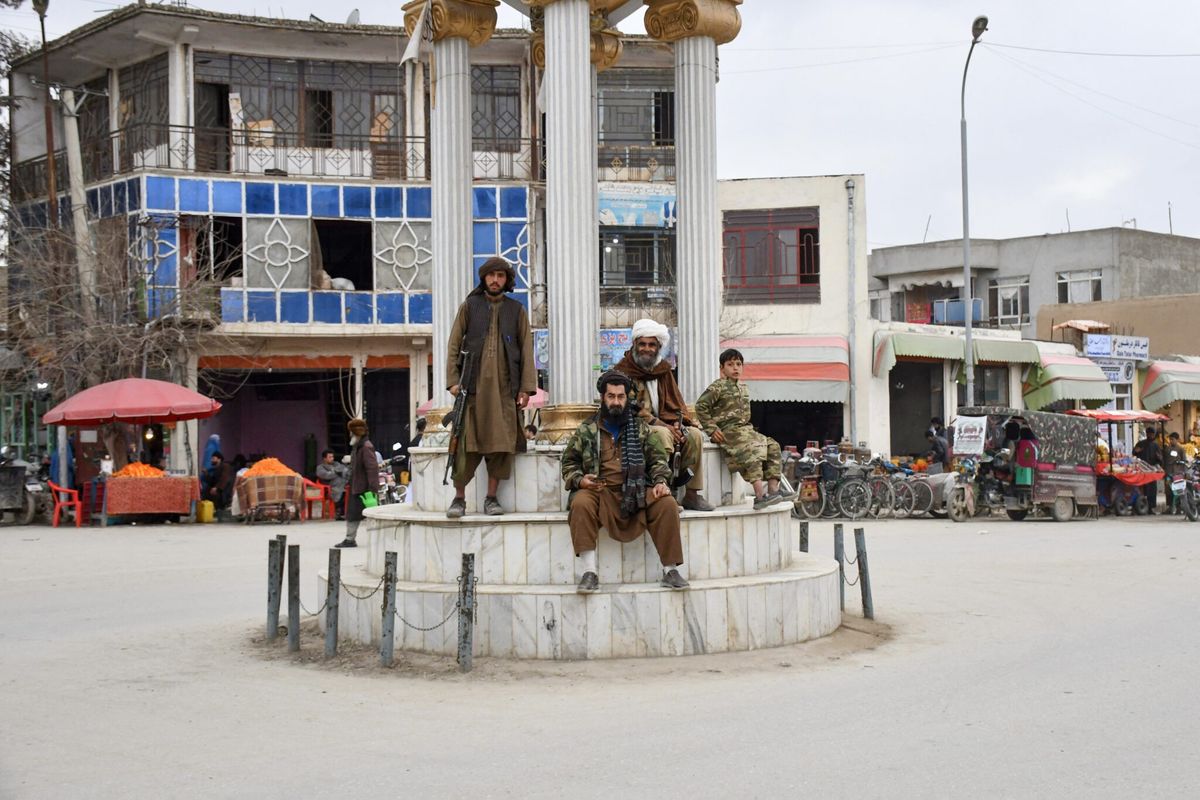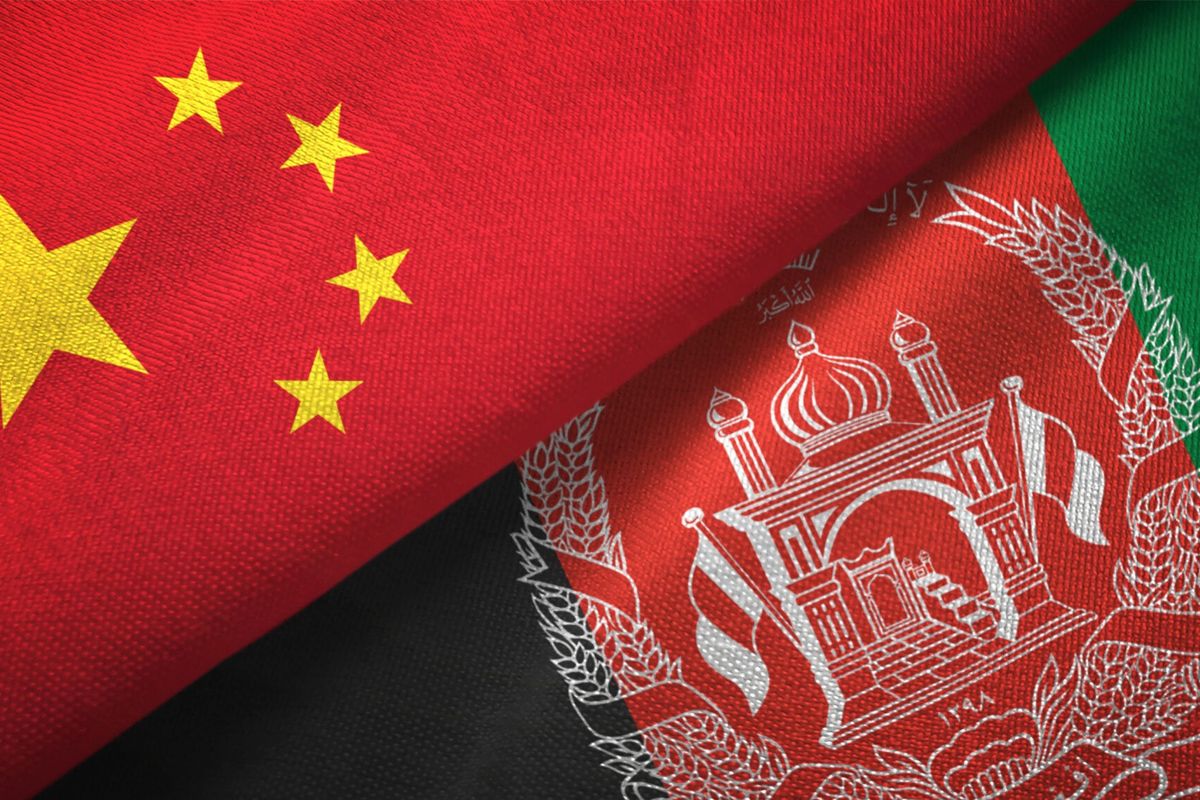Negotiations have wrapped up between the U.S. and the Taliban, with both sides citing ‘progress’ but nothing groundbreaking in terms of a settlement. These are the longest talks of their kind since the conflict began in 2001.
In the aftermath of the negotiations, a diplomatic crisis is growing between Washington and Kabul. Frustrated at having been shut out of the talks, Afghan President Ashraf Ghani and his administration have been increasingly vocal in their displeasure toward the U.S. and how negotiations are proceeding.
Background:
- Ghani’s National Security Advisor, and former Afghan Ambassador to the U.S., Hamdullah Mohib stunned Washington by denouncing Zalmay Khalilzad, the American peace envoy to Afghanistan, as an American ‘viceroy’ with ambitions to lead an interim Afghan government. In response, a senior U.S. official summoned Mohib and warned him that such comments could damage the peace process.
- President Ghani is under pressure to postpone July’s upcoming elections, with critics saying that a national election could derail the peace process. The Taliban insist that the government in Kabul, which it does not recognize as legitimate, will have no role in the peace talks.
- Despite U.S. conditions that all Afghans, including non-Taliban Afghans must agree on any final agreement, many in the country are worried that a U.S. withdrawal, will mean a return to power of the Taliban, something that was unthinkable just a few years ago.
- The Taliban political chief, Mulla Baradar speaking publicly for the first time since his release last year from a Pakistani prison, sought to reassure worried Afghans about the Taliban’s vision for the future, saying, “Everyone will be treated very well" and that the leadership of the Islamic Emirate, the Taliban term for its religious government, will have “patience and mercy toward all”.
- The U.S. Military isn’t convinced and has continued to strike hard at the Taliban. Since the arrival of General Scott Miller, the current U.S. commander in Afghanistan, the tempo of U.S. strikes, and the targeting of Taliban by U.S. Special Operations has seen a dramatic increase, according to military sources who spoke with The Cipher Brief.
- Despite consistent battlefield defeats, the Taliban have retained the capability of attacking Afghan forces, and temporarily capturing territory in remote parts of the country. Just last week, on March 11, the New York Times reported that an entire Afghan Army company had been defeated in an attack by the Taliban, and that 16 Afghan troops were killed, and more than 40 taken from their base in northwestern Badghis Province, near the border with Turkmenistan.
- Issues that further complicate an already complicated situation include Moscow’s direct engagement with the Taliban, the presence of ISIS in Afghanistan, Pakistan’s role as regional Taliban influencer and uncertainty regarding U.S. policy, long term objectives and commitment to Afghanistan.
Ahead of The Cipher Brief’s 2019 Threat Conference, we caught up with two of our experts, each with deep knowledge of the Afghan conflict, to get their thoughts on the peace talks, their confidence in the Taliban’s role as a legitimate political player, Pakistan’s involvement and their overall perspective on how they see Afghanistan progressing in the coming months.
Nick Fishwick, Former Senior Member, British Foreign Office
"The talks between the Taliban and Zalmay Khalilzad have to be the right way forward. The Taliban appointment of Mullah Baradar to lead the talks on their side was an exciting development - Baradar has been a big hitter in the Taliban for years and so for the Taliban negotiations to be headed by him is at least meant to suggest that the Taliban are taking the talks seriously."
"The way the talks have been conducted has bruised some important players. The Taliban have always claimed that the governments in Kabul since 2001 have been “western puppets” but we should continue to reject that claim. So, it’s not surprising that the Afghan government looks worried at its exclusion from the talks so far. But one of the four key points of Mr. Khalilzad’s approach to negotiations is that there has to be a settlement between Afghans. That means that the Afghan government and non-Taliban sectors of Afghan society will have to agree any deal for it to stick," says Fishwick.
"The fact is that while some may be critical of how Mr. Khalilzad has approached these talks; his leadership of these talks is a sign of deep US engagement. All attempts to engage the Taliban in dialogue until recent years floundered because of US hostility or indifference to the dialogue. So, the extent of US engagement, and of someone like Baradar to speak for the Talibs, are real steps forward," says Fishwick.
Nick Fishwick, Former Senior Member, British Foreign Office
"But the challenges around the clinching of a truly acceptable deal are immense. As we have seen, the Afghan government and different sectors of Afghan society need to accept any new settlement. Mullah Baradar’s early assurances that no one has anything to fear are, as Sam Goldwyn would say, not worth the paper they’re written on. Whatever the Taliban think of ISIS, would they really help to keep ISIS under control? How do the gains of the last seventeen years, including more education and opportunities for girls and women, survive the return of the Talibs? What guarantees would be enough to persuade the US/NATO to pull its remaining forces out?"
On Pakistan, Fishwick says, "The recent flare-up between India and Pakistan could, as one of its side effects, have had a knock-on for the talks in Doha. This was smartly avoided but it was a reminder that for Pakistan the bigger picture concern is around regional stability and rivalry with India. Pakistan will continue to worry about Indian influence in Afghanistan and will continue to feel that the more influence the Taliban has, the more influence Pakistan has. This is not necessarily a bad thing but it’s a reminder that Pakistan regional doctrine is the same as in the 1990s. They may have accepted that the Taliban are not going to “win” militarily at least so long as NATO remains engaged and some deal bringing the Talibs back is now the best they can hope for. At least in the short term. As with the Taliban, regarding a possible Afghan settlement, what matters are not assurances that the Pakistan side may give but the robustness of the mechanism to make the deal stick."
The Cipher Brief: What do you think when you sit back and look at Afghanistan and what's at stake there? Should the U.S. trust the Taliban to be a responsible political player? Is the Afghan government going to be able to cobble together an agreement that works? And has the Taliban learned to thrive in the Gray zone?
Doug Wise, Former Deputy Director, Defense Intelligence Agency
"I think first, and I may be in the minority here because there is a lot of support for either maintaining or increasing U.S. and coalition forces in Afghanistan, but I think there are a number of factors that argue against that, not the least of which is the fact that the Taliban enjoys safe haven in Pakistan. So, there's no way to defeat the enemy per se. The notion that we can create a traditional victory out of this forever war, I think is absolutely impossible."
"Also, if you ask the question, "Has there ever been a history of central governance in Afghanistan?” The answer is no. The country has always been predominately influenced by fiefdoms and warlords," says Wise. "So, in addition to having no history of central governance in Afghanistan, what you’ve got is a huge geographically and culturally dispersed, country. It's not really a nation, it's a country. There are multiple ethnicities, multiple political factions, it has a history of warlords and feudalism as it’s national “consciousness”. And then we, the west come in and install an expat government of exiles that really haven't lived in Afghanistan. They understood democracy, they'd lived in a democracy and so in a sense they had an advantage in that they understood what a democratic nation state is capable of doing and what it takes to create and govern a democratic process. But the fact of the matter is, those very same people that bring that experience also bring an estrangement with the common people of Afghanistan. What you find as a result, I think, is that there is more commonality between the people of Afghanistan with the Taliban, than with any of those people that have an affinity with an expat western installed government, or the coalition of western militaries."
"Out of that I don’t think there is any way that we can expect to end up getting a traditional victory where the enemy is vanquished and we've eliminated the threat. The Taliban are going to be there, it’s impossible to eliminate them. So, the Taliban will have a role in the future governing structure of Afghanistan, whether we like it or not," Wise adds.
Doug Wise, Former Deputy Director, Defense Intelligence Agency
"Obviously, I think that the fact that our government is engaging the Taliban in peace keeping negotiations, we recognize we’re not going to win this and so we have to engage politically and economically with Afghanistan. But I think militarily we’ve got to call it quits, cut our loses, and actually come home."
"Which then gets into your point about the gray zone because guess what the Taliban is doing? They're actually fighting a gray zone style war, not a traditional doctrinal gray zone style war because they're not a peer nation state, but as a parastate entity they've created an interminable war with no hope of us having a victory, and with every expectation that they're going to outlast us. So, they are applying gray zone asymmetric tools and validating the fact that our significant weakness as a nation state, in Afghanistan is going to be in the gray zone where we’re asymmetrically vulnerable," says Wise.
Nick Fishwick and Doug Wise will both be attending The Cipher Brief's 2019 Threat Conference in Sea Island, GA March 24-26
Read also The Cipher Brief Exclusive: On Nobility and the CIA's War in Afghanistan















